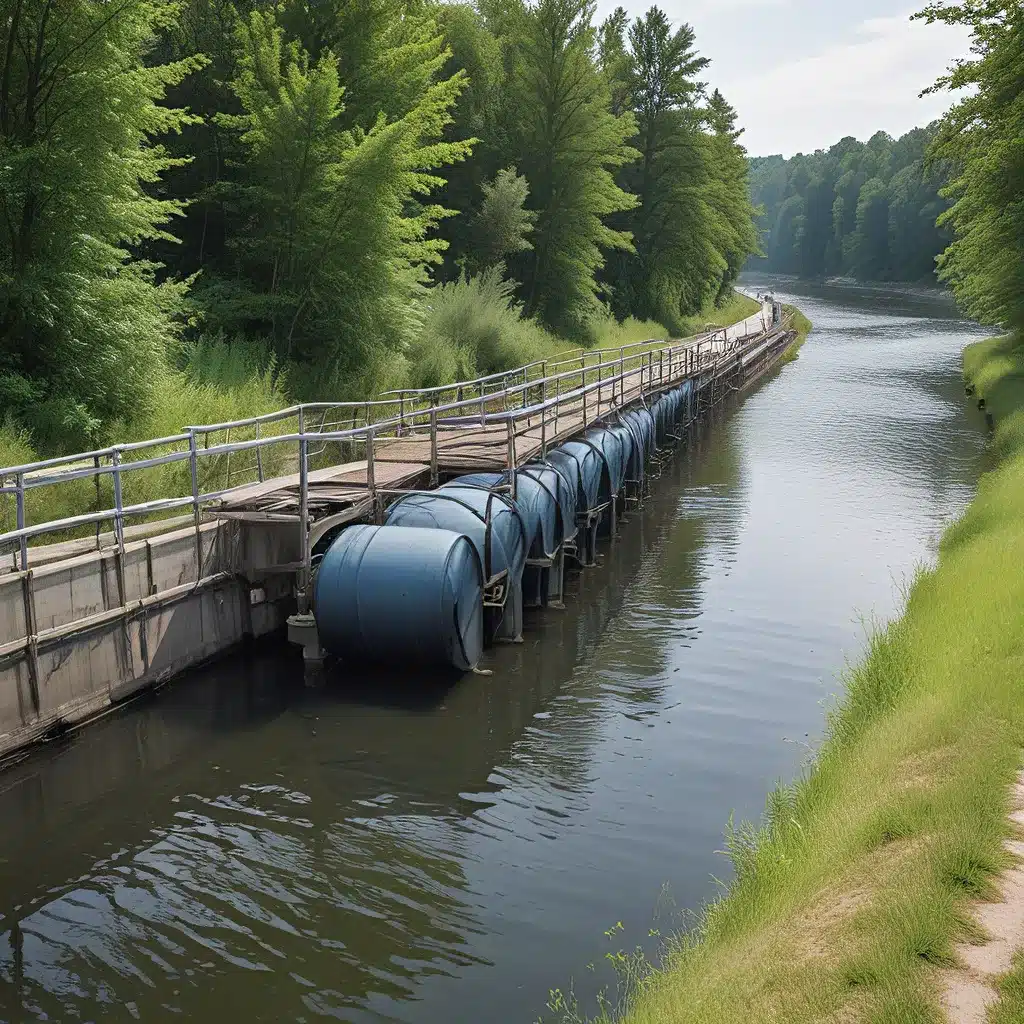
Navigating the Murky Waters of Wastewater: A Crucial Responsibility
As I gaze out over the glistening surface of a tranquil lake, it’s hard to imagine the hidden complexities that lie beneath. But the truth is, our waterways are constantly under threat from the unseen world of wastewater.
As someone who has spent years working in the water treatment industry, I’ve seen firsthand the critical role that effective wastewater management plays in safeguarding the health of our precious aquatic ecosystems. It’s a responsibility that may not always be glamorous, but it’s one that we simply cannot afford to ignore.
The Ripple Effect of Wastewater Mismanagement
Picture a serene river, its banks lined with lush vegetation and teeming with diverse wildlife. Now imagine that same river slowly being choked by a steady influx of pollutants – everything from excess nutrients and heavy metals to harmful bacteria and microplastics. This is the reality that far too many of our waterways are facing today.
The consequences of poor wastewater management can be far-reaching and devastating. Contaminated water supplies can pose serious risks to human health, while the disruption of delicate aquatic ecosystems can have catastrophic effects on the plants and animals that depend on them. And let’s not forget the economic impact, as polluted waters can wreak havoc on industries like tourism, fishing, and recreation.
Embracing a Holistic Approach to Wastewater Management
Tackling the challenge of wastewater management requires a multifaceted approach that takes into account the complex interplay of various factors. It’s not enough to simply focus on the end-of-pipe treatment process – we need to consider the entire lifecycle of wastewater, from its source to its ultimate disposal or reuse.
One of the key components of this holistic approach is source control. By implementing best practices at the point of wastewater generation, we can reduce the overall load of pollutants entering our water systems. This might involve educating businesses and households on proper waste disposal, promoting the use of environmentally-friendly products, or implementing stricter regulations on industrial discharges.
Another crucial element is the optimization of wastewater treatment technologies. From advanced biological processes to innovative membrane filtration systems, the field of wastewater treatment is constantly evolving to meet the ever-changing demands of our environment. By staying on the cutting edge of these advancements, we can ensure that our wastewater is thoroughly cleansed before it’s released back into our waterways.
But the story doesn’t end there. Once the wastewater has been treated, we need to carefully consider its ultimate disposition. Increasingly, we’re seeing a shift towards water reuse, where treated effluent is repurposed for applications like irrigation, industrial processes, and even potable water supply. This not only helps to conserve our precious water resources but also reduces the overall strain on our aquatic ecosystems.
Harnessing the Power of Collaboration
The task of safeguarding our waterways is not one that any single entity can tackle alone. It requires a concerted effort from a diverse array of stakeholders, including government agencies, water utilities, environmental organizations, and the general public.
The U.S. Environmental Protection Agency’s Office of Water, for example, plays a crucial role in developing and enforcing the regulations that govern water quality and wastewater management. By working closely with state and local authorities, as well as industry groups and community organizations, this office helps to ensure that our waterways are protected.
But collaboration goes beyond just regulatory frameworks. It also involves sharing knowledge, best practices, and innovative solutions. By fostering a culture of open communication and cross-pollination of ideas, we can accelerate the progress towards more sustainable and effective wastewater management.
Empowering Communities to Take Action
As important as the work of government agencies and industry leaders is, the true power to safeguard our waterways lies in the hands of the people. Every individual has a role to play in reducing their environmental impact and supporting the efforts to protect our precious water resources.
Organizations like Protect Our Water Jackson Hole are doing an incredible job of engaging local communities and empowering them to take action. Whether it’s advocating for stricter regulations, supporting water quality monitoring programs, or simply educating residents on best practices for septic system maintenance, these grassroots initiatives are making a real difference.
And the impact of these community-driven efforts can be truly profound. Just consider the case of the Fish Creek watershed in Jackson Hole, Wyoming, where a proposed wastewater facility development was halted due to the efforts of concerned citizens. By staying vigilant and advocating for the protection of their local waterways, these individuals were able to prevent a potentially devastating impact on the delicate ecosystem.
A Future Where Water is Truly Treasured
As I reflect on the complexities of wastewater management, I can’t help but feel a sense of optimism about the future. Yes, the challenges are significant, and the work ahead of us is daunting. But I’ve seen firsthand the incredible progress that can be made when we come together and commit to safeguarding our most precious resource.
From the innovative technologies that are revolutionizing the way we treat and reuse water, to the passionate individuals and organizations that are tirelessly advocating for change, there are countless reasons to be hopeful. And as we continue to build upon these successes, I have no doubt that we can create a world where our waterways are truly treasured and protected for generations to come.
So, let’s roll up our sleeves and get to work. The future of our aquatic ecosystems is counting on us.


